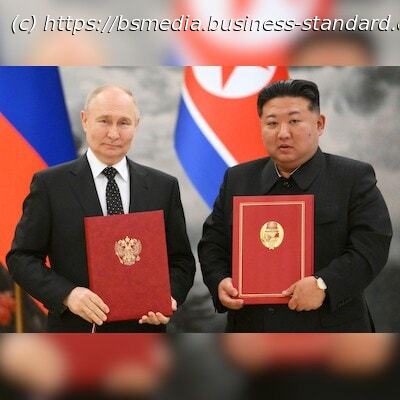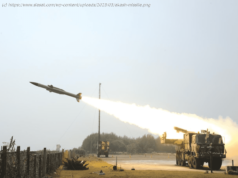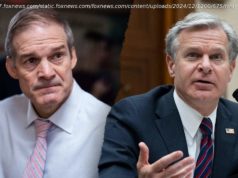Behind the smiles, the balloons and the red-carpet pageantry of President Vladimir Putin’s visit to North Korea last week, a strong signal came through: In the spiralling confrontation with the US and its allies over Ukraine, the Russian leader is willing to challenge Western interests like never before.
For Russia, it will mean an end to its statehood, an end to the millennium-long history of the Russian state. And a question arises: Why should we be afraid? Isn’t it better, then, to go to the end? | (Photo: Reuters)
Behind the smiles, the balloons and the red-carpet pageantry of President Vladimir Putin’s visit to North Korea last week, a strong signal came through: In the spiralling confrontation with the US and its allies over Ukraine, the Russian leader is willing to challenge Western interests like never before.
The pact that he signed with North Korean leader Kim Jong Un envisions mutual military assistance between Moscow and Pyongyang if either is attacked.
Putin also announced for the first time that Russia could provide weapons to the isolated country, a move that could destabilise the Korean Peninsula and reverberate far beyond.
He described the potential arms shipments as a response to Nato allies providing Ukraine with longer-range weapons to attack Russia. He bluntly declared that Moscow has nothing to lose and is prepared to go to the end to achieve its goals in Ukraine.
Putin’s moves added to concerns in Washington and Seoul about what they see as an alliance in which North Korea provides Moscow with badly needed munitions for its war in Ukraine in exchange for economic assistance and technology transfers that would enhance the threat posed by Kim’s nuclear weapons and missile programme.
A landmark pact
The new agreement with Pyongyang marked the strongest link between Moscow and Pyongyang since the end of the Cold War.
Kim said it raised bilateral relations to the level of an alliance, while Putin was more cautious, noting the pledge of mutual military assistance mirrored a 1961 treaty between the Soviet Union and North Korea. That agreement was discarded after the Soviet collapse and replaced with a weaker one in 2000 when Putin first visited Pyongyang.
Stephen Sestanovich, senior fellow at the Council on Foreign Relations noted that when Soviet leader Nikita Khrushchev signed the deal with Pyongyang in 1961, he also tested the world’s biggest nuclear bomb, built the Berlin Wall and probably started thinking about moves that led to the Cuban missile crisis in 1962.
The question for Western policymakers now is whether Putin is becoming comparably reckless, Sestanovich said in a commentary. His language in North Korea — where he denounced the United States as a worldwide ’neocolonialist dictatorship‘ might make you think so.






